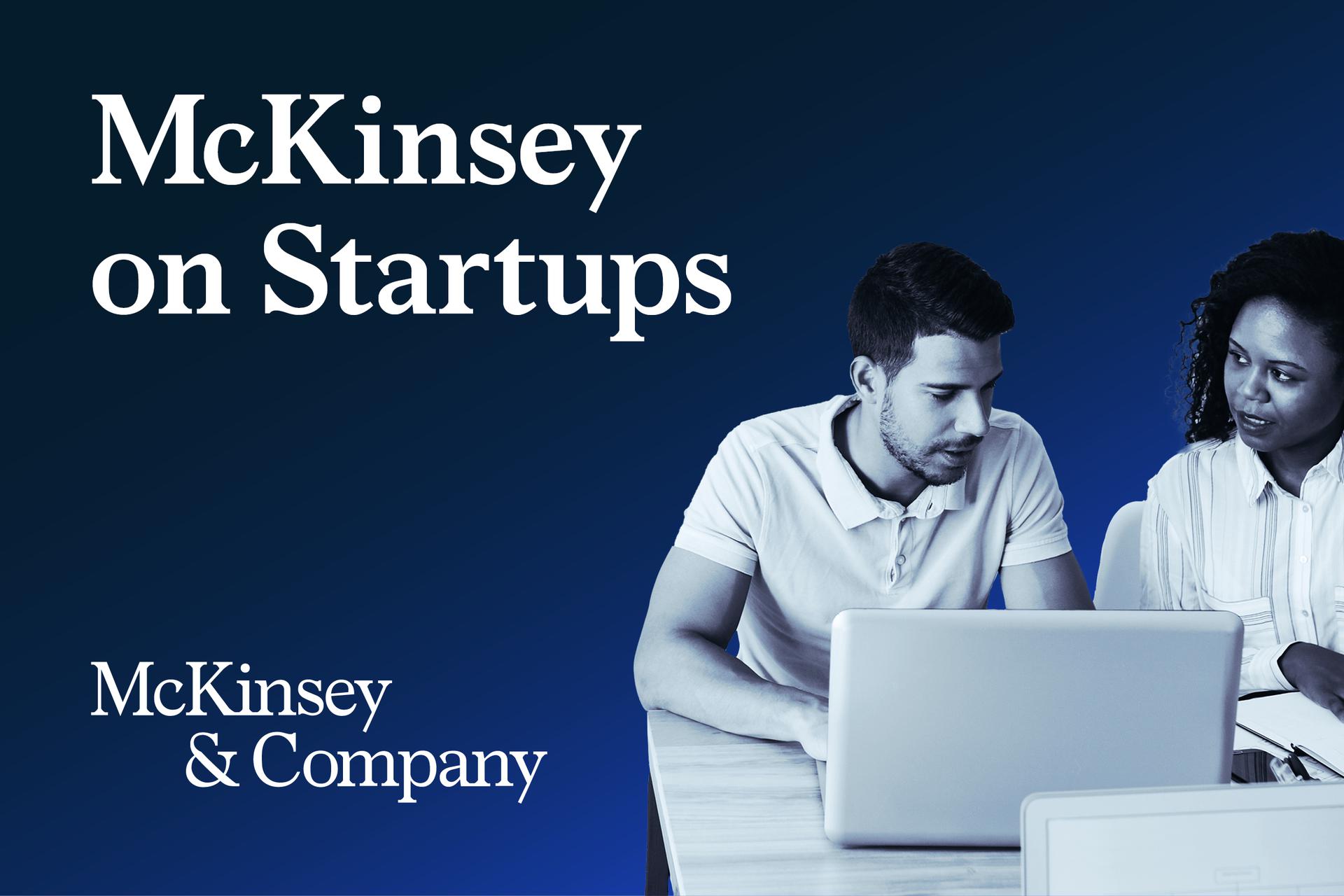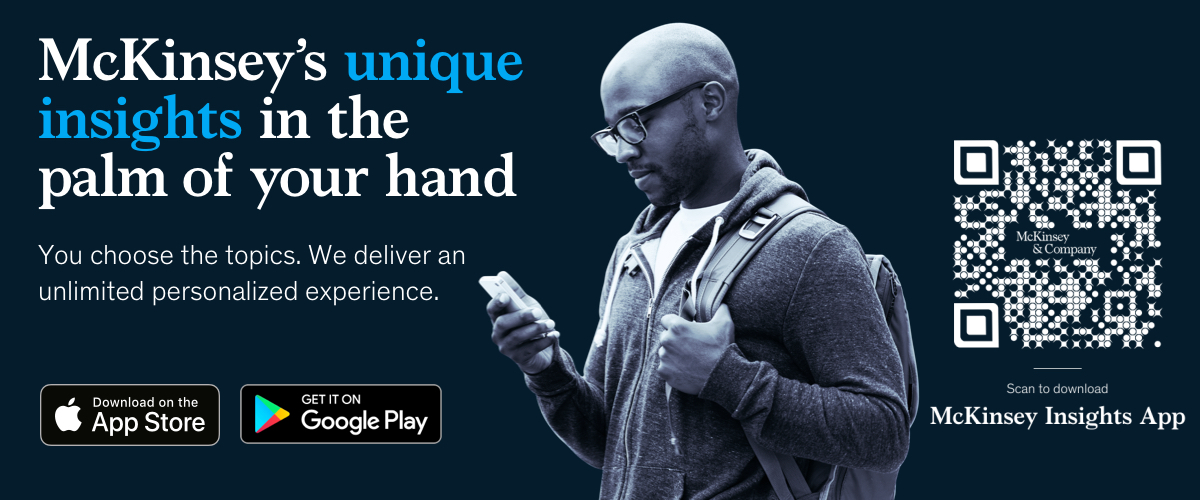|
Good morning,
Knowledge Partner
Herewith, some pieces that you might have missed during this busy week at Puck. And stick around, below the fold, for some more insight into what’s really going on behind the scenes at Puck.
SILICON VALLEY: Teddy Schleifer goes inside Laurene Powell Jobs’ enigmatic empire.
HOLLYWOOD: Dylan Byers breaks the news on Disney’s evaluation of its future with ESPN. and... Matt Belloni goes behind the scenes to uncover Netflix’s Chappelle P.R. crisis strategy.
WASHINGTON: Julia Ioffe explains what everyone in This Town is talking about—and really talking about. and… Peter Hamby previews 2024 as it's playing out in Virginia, a battle between two rich white guys shadowboxing with Donald Trump.
WALL STREET: Bill Cohan explains the banker-eye-view on Trump’s legal challenges.
KNOWLEDGE PARTNER Start it up Looking to get smarter on the next big tech disruption start-ups and venture capitalists around the world are dreaming up? The new McKinsey on Start-ups podcast dives deeper, featuring conversations with founders and leaders, investors, and industry experts from across borders and sectors. Each episode offers a unique perspective on the innovation journey, including the challenges entrepreneurs face in scaling their companies, and the dedication needed to overcome them.
On Monday afternoon, I said goodbye to a great friend and former colleague, John Homans. If you haven’t worked in New York media, it’s possible that you might not have known John. But if you’d ever stepped foot into the magazine industry, especially during its roaring heyday, it’s likely you either worked with him, worked with someone who had, or (and more likely than not) your work itself was unconsciously imbued by ideas and styles that he had fashioned as a trailblazing editor in a daring career spanning from the 80s to his untimely death in 2020.
John was the Zelig of the magazine business—knew everyone, worked with everyone, was respected and admired, and occasionally feared, by everyone. He started his career working for the legendary Clay Felker, the genius co-founder of New York, at a long defunct but then-cutting edge operation known as Manhattan Inc. His career traced the arc of the business and he collaborated with the great editors of our time: Felker, Lewis Lapham, Peter Kaplan, Adam Moss, Joanna Coles, Hugo Lindgren, Josh Tyrangiel, and the one and only Graydon Carter. He nurtured talents from John Heilemann and Michael Wolff to Vanessa Grigoriadis and Gabe Sherman. I got to know John when he came to work at The Hive, where we instantaneously became pals and gossip buddies. I’d spent the first fifteen years of my career learning from his protégés; so by the time we got together, I felt as if I’d known him my whole life.
On Monday, John’s immortal spirit was toasted in a COVID-safe memorial in the East Village in front of a large, socially-distanced outdoor crowd via beautiful speeches from John Seabrook, Mark Danner, Sherman, and Ariel Levy. (I also read some remarks.) The inimitable David Remnick joined John’s gigging rock band, The Sequoias, and brought down the house with a tear-jerking rendition of I Shall be Released. Caryn Prime, an executive at Vanity Fair, read aloud a poem from Updike. Between Dylan and Updike, whom I’ve name-checked in recent columns (maybe gratuitously, he would likely say), I laughed at John’s own posthumous influence on my own work.
KNOWLEDGE PARTNER
In Max Perkins: Editor of Genius, A. Scott Berg chronicled the extraordinary intellectual and emotional capacities of Perkins, a largely unknown literary figure, who happened to edit two of the greatest authors of our time in Ernest Hemingway and F. Scott Fitzgerald. Berg’s explanation of Perkins’ ineffable talent for inspiring creative people was so powerful that the biography used to be required reading for aspiring agents at CAA. I’m not a master narrator like Berg, but I’ll put it this way: the invisible hand behind the creative process is an extraordinary thing to behold, and John Homans became the living embodiment.
I’ve thought about John so much lately, in part, because his spirit imbues the mission of Puck. John passed before we raised up our journalist-owned business, but he was always an advocate of creating opportunities for generational talent. And he knew that the seminal factor that once made the magazine business so great—the ability to connect authors with their audience—was going to be remade on the web, via subscription, so that the talent became the center of the business equation. In fact, we discussed this very topic at our final lunch, shortly before he passed. His ferocious creative spirit will always be an inspiration.
The change in the media landscape was also apparent in our work this week. In an incredible piece of reportage, Dylan broke the news that Disney is now beginning to consider whether there is strategic rationale for spinning off ESPN—a once unthinkable notion that now might make the most sense for both the parent company and subsidiary, alike. Meanwhile, Matt went deep on the crisis roiling Netflix, as Ted Sarandos navigates the complicated waters stemming from the Dave Chappelle crisis.
But if you read one thing, I’d recommend Teddy’s feature on Laurene Powell Jobs’ sprawling and complex utopian philanthro-investment shop, Emerson Collective. Can Emerson scale along with Jobs’ ambitions? That’s the $22 billion question.
Thanks for reading. Have a great weekend, Jon
P.S. - if there's something holding you back from becoming a subscriber, I'd love to hear about it. Please feel free to reply to this email with your feedback (replies go directly to my inbox).
|
-
Join Puck
Directly Supporting Authors
A new economic model in which writers are also partners in the business.
Personalized Subscriptions
Customize your settings to receive the newsletters you want from the authors you follow.
Stay in the Know
Connect directly with Puck talent through email and exclusive events.



















